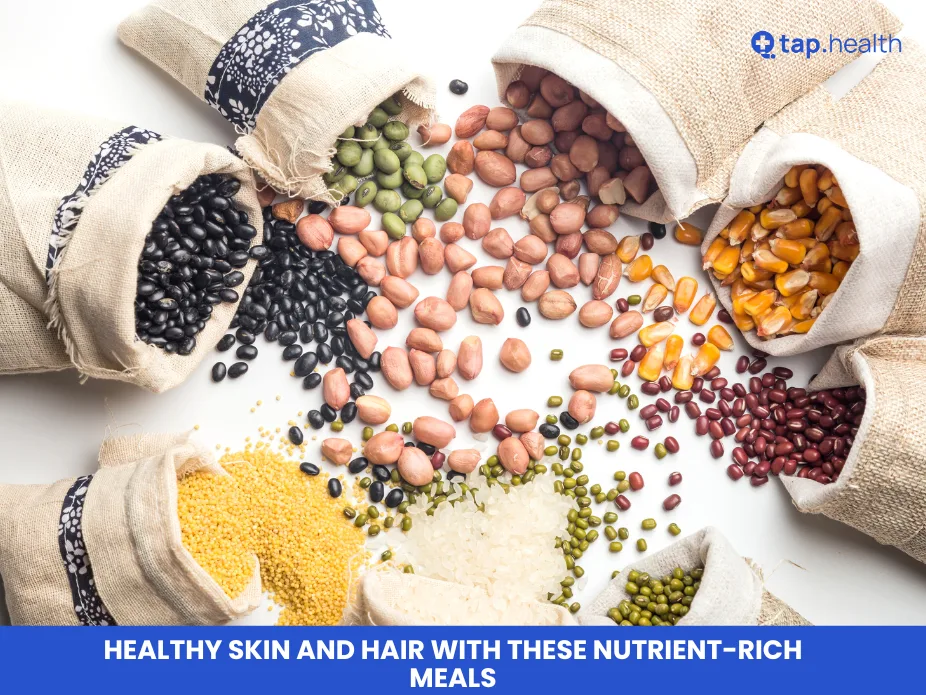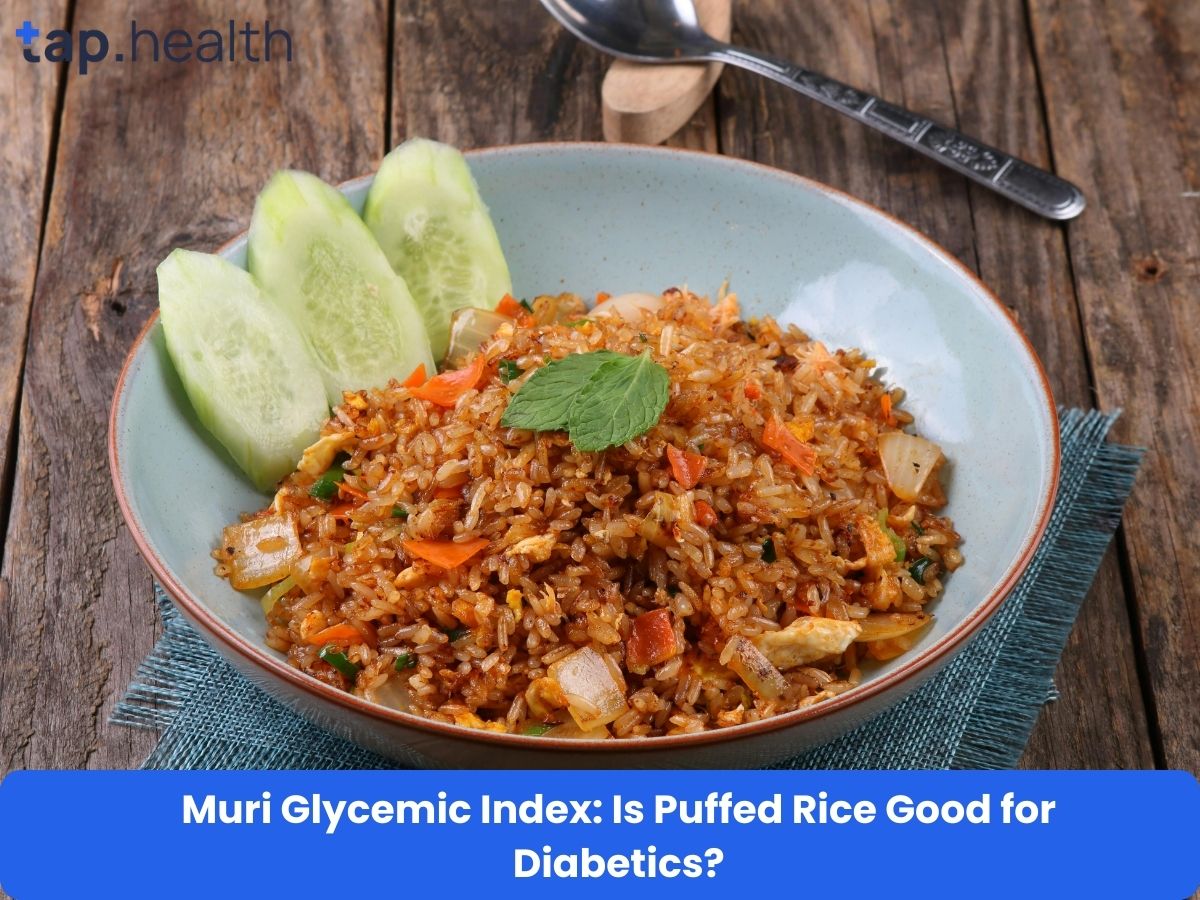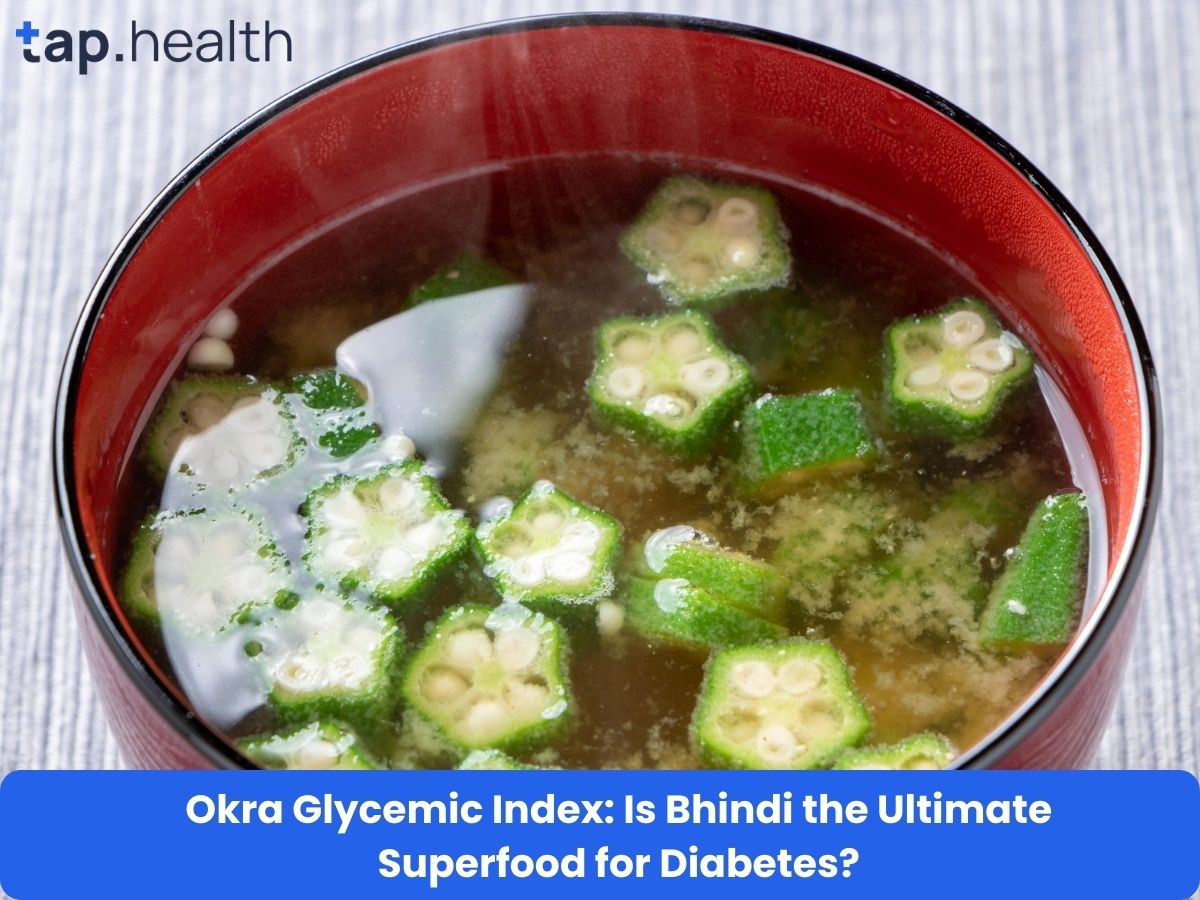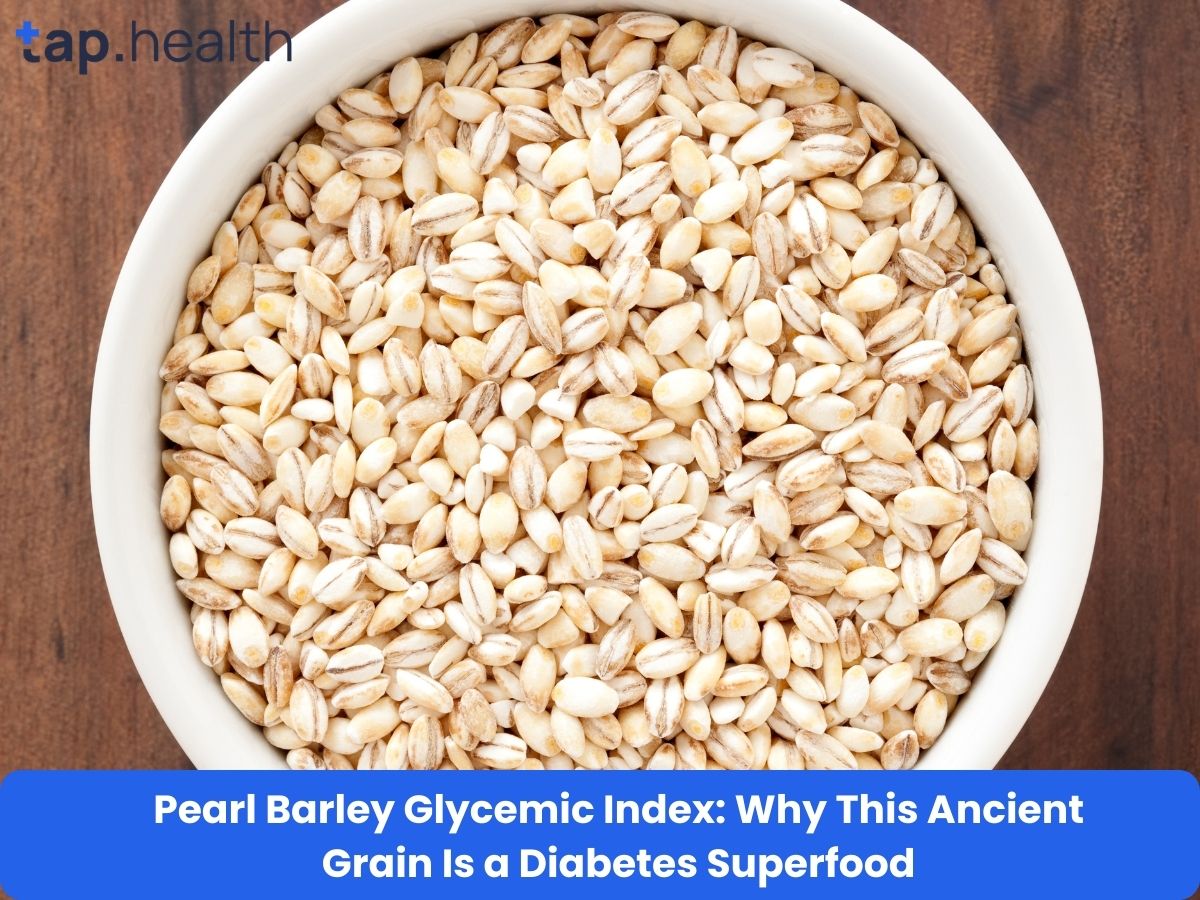Everyone desires radiant skin and lustrous hair, and while skincare routines and hair care products play a significant role, what you eat is equally important. Incorporating healthy skin and hair with these nutrient-rich meals into your diet can nourish your body from the inside out, promoting glowing skin and strong, shiny hair. In this blog, we’ll explore the best foods for skin and hair health, share real-life scenarios, expert insights, and provide easy-to-follow recipes backed by research. Let’s dive in!
Why Your Diet Matters for Skin and Hair Health
Your skin and hair are the largest organs and structures in your body, respectively. They reflect your overall health and can show signs of nutritional deficiencies or imbalances. A balanced diet rich in essential nutrients provides the building blocks your body needs to repair and regenerate skin cells and hair follicles. Poor dietary choices, on the other hand, can lead to dull skin, brittle hair, and various skin conditions like acne and eczema.
Key Nutrients for Healthy Skin and Hair
- Vitamin C: Essential for collagen production, which keeps skin firm and hair strong.
- Vitamin E: Acts as an antioxidant, protecting skin from damage and promoting healthy hair growth.
- Omega-3 Fatty Acids: Reduce inflammation and keep skin moisturized; support scalp health.
- Biotin (Vitamin B7): Promotes hair strength and growth; essential for healthy skin.
- Zinc: Helps repair skin tissues and prevents hair loss; supports immune function.
- Antioxidants: Protect skin and hair from oxidative stress caused by free radicals.
- Protein: Provides amino acids necessary for building keratin, the protein that makes up hair and nails.
- Iron: Prevents hair loss and supports oxygen transport to skin cells.
Top Nutrient-Rich Foods for Skin and Hair
1. Salmon
Salmon is packed with omega-3 fatty acids, which help maintain skin elasticity and hydration. It’s also a great source of protein, vitamin D, and selenium, which support hair growth and strength.
Real-Life Scenario:
Emily, a 34-year-old graphic designer, struggled with dry skin and thinning hair. After adding salmon to her diet twice a week, she noticed her skin became more hydrated and her hair grew thicker and stronger.
2. Spinach
Spinach is loaded with vitamins A, C, and E, as well as iron and folate. These nutrients help in the production of sebum, a natural oil that keeps hair moisturized and prevents dryness. Vitamin A also promotes the production of new skin cells.
3. Berries
Berries like blueberries, strawberries, and raspberries are rich in antioxidants, particularly vitamin C, which helps protect the skin from free radical damage and supports collagen production. They also aid in maintaining a healthy scalp.
4. Nuts and Seeds
Almonds, walnuts, chia seeds, and flaxseeds are excellent sources of healthy fats, vitamin E, and zinc. These nutrients help reduce inflammation, protect skin from oxidative stress, and promote healthy hair growth.
5. Avocados
Avocados are packed with healthy monounsaturated fats, vitamin E, and vitamin C. They help keep the skin moisturized, reduce inflammation, and support the production of collagen for skin elasticity.
6. Sweet Potatoes
Sweet potatoes are rich in beta-carotene, which the body converts into vitamin A. This nutrient helps protect the skin from sun damage, promotes healthy cell growth, and supports hair health by strengthening hair follicles.
7. Eggs
Eggs are a great source of high-quality protein, biotin, and zinc. Biotin is crucial for hair growth and strength, while zinc helps repair skin tissues and prevents hair loss.
8. Greek Yogurt
Greek yogurt is rich in protein, probiotics, and vitamins B5 and D. Protein is essential for hair growth, while probiotics support a healthy gut, which can improve skin health. Vitamin B5 helps with sebum production, keeping the skin and scalp moisturized.
9. Bell Peppers
Bell peppers are loaded with vitamin C and antioxidants, which help protect the skin from damage and support collagen production. They also promote a healthy scalp and hair growth.
10. Green Tea
Green tea is rich in catechins, powerful antioxidants that help protect the skin from free radical damage and reduce inflammation. It also supports hair growth by improving blood circulation to the scalp.
Expert Contributions
Dr. Laura Bennett, a dermatologist at the Skin and Hair Health Institute, emphasizes the importance of nutrition in maintaining skin and hair health. She states, “A diet rich in vitamins, minerals, and healthy fats is fundamental for healthy skin and hair. By choosing nutrient-dense foods, individuals can enhance their natural beauty and prevent common issues like dryness, breakage, and premature aging” Skin and Hair Health Institute.
Recommendations Grounded in Proven Research and Facts
Incorporate a Variety of Nutrient-Rich Foods
Eating a diverse range of nutrient-rich foods ensures you receive a broad spectrum of vitamins and minerals that work together to support skin and hair health. Aim to include at least five servings of fruits and vegetables, two servings of fatty fish, and a handful of nuts and seeds each day.
Stay Hydrated
Proper hydration is essential for maintaining skin elasticity and preventing dryness. Aim to drink at least eight glasses of water a day, and include hydrating foods like cucumbers, watermelon, and citrus fruits in your diet.
Limit Processed Foods and Sugars
High intake of processed foods and sugars can lead to inflammation and breakouts, affecting both skin and hair health. Focus on whole, unprocessed foods to support your body’s natural functions and maintain a healthy glow.
Include Healthy Fats in Your Diet
Healthy fats found in avocados, nuts, seeds, and fatty fish are crucial for maintaining skin moisture and promoting hair strength. They also help reduce inflammation, which can prevent skin conditions like acne and psoriasis.
Manage Stress Effectively
Chronic stress can disrupt hormone balance, leading to skin issues and hair loss. Incorporate stress-reducing activities like yoga, meditation, or regular exercise into your routine to support overall well-being.
Real-Life Scenarios
Case Study 1: Anna’s Glowing Skin Transformation
Anna, a 29-year-old teacher, struggled with dull skin and frequent breakouts. After consulting with a nutritionist, she began incorporating more berries, spinach, and nuts into her diet while reducing her intake of sugary snacks. Within three months, Anna noticed her skin became clearer, more vibrant, and her breakouts significantly decreased.
Case Study 2: Mike’s Hair Growth Journey
Mike, a 35-year-old software developer, experienced thinning hair and slow growth. By adding more protein-rich foods like eggs, Greek yogurt, and fatty fish to his meals, along with nuts and seeds, Mike saw a noticeable improvement in hair thickness and growth within six months.
Factual and Reliable Information
Research consistently supports the link between diet and skin and hair health. A study published in the Journal of Cosmetic Dermatology found that a diet rich in antioxidants, vitamins, and healthy fats is associated with improved skin elasticity and reduced signs of aging Journal of Cosmetic Dermatology.
Another study in Nutrients highlighted the benefits of omega-3 fatty acids and vitamin D in promoting hair growth and preventing hair loss Nutrients Journal.
Easy and Delicious Hormonal Balance Meal Ideas
Breakfast: Spinach and Berry Smoothie
Ingredients:
- 1 cup fresh spinach
- 1/2 cup mixed berries (blueberries, strawberries, raspberries)
- 1 banana
- 1 tablespoon chia seeds
- 1 cup almond milk
- 1 teaspoon honey (optional)
Instructions:
- Combine all ingredients in a blender.
- Blend until smooth.
- Pour into a glass and enjoy a nutrient-packed start to your day!
Lunch: Quinoa and Black Bean Salad
Ingredients:
- 1 cup cooked quinoa
- 1 can black beans, drained and rinsed
- 1 red bell pepper, diced
- 1/2 red onion, finely chopped
- 1/4 cup fresh cilantro, chopped
- 2 tablespoons olive oil
- 1 tablespoon lime juice
- Salt and pepper to taste
Instructions:
- In a large bowl, combine cooked quinoa, black beans, red bell pepper, red onion, and cilantro.
- In a small bowl, whisk together olive oil, lime juice, salt, and pepper.
- Pour the dressing over the salad and toss gently.
- Serve chilled or at room temperature for a refreshing, hormone-balancing meal!
Dinner: Baked Salmon with Asparagus
Ingredients:
- 2 salmon fillets
- 1 bunch asparagus, trimmed
- 2 tablespoons olive oil
- 1 lemon, sliced
- 2 cloves garlic, minced
- Salt and pepper to taste
Instructions:
- Preheat oven to 400°F (200°C).
- Place salmon fillets and asparagus on a baking sheet.
- Drizzle with olive oil and sprinkle with minced garlic, salt, and pepper.
- Top each salmon fillet with lemon slices.
- Bake for 15-20 minutes or until salmon is cooked through and asparagus is tender.
- Serve warm for a delicious, hormone-supporting dinner!
Snack: Greek Yogurt with Berries and Nuts
Ingredients:
- 1 cup Greek yogurt
- 1/2 cup mixed berries (blueberries, strawberries, raspberries)
- 2 tablespoons almonds or walnuts, chopped
- 1 tablespoon honey
- 1 tablespoon flaxseeds
Instructions:
- In a bowl, add Greek yogurt.
- Top with mixed berries and chopped nuts.
- Drizzle with honey and sprinkle flaxseeds on top.
- Enjoy a delicious and immune-boosting snack!
Smoothie: Green Thyroid Booster
Ingredients:
- 1 cup kale leaves
- 1/2 avocado
- 1 banana
- 1/2 cup pineapple chunks
- 1 tablespoon chia seeds
- 1 cup almond milk
- 1 teaspoon honey (optional)
Instructions:
- Combine all ingredients in a blender.
- Blend until smooth.
- Pour into a glass and enjoy a refreshing, nutrient-rich smoothie!
Dessert: Dark Chocolate and Walnut Energy Bites
Ingredients:
- 1 cup walnuts
- 1 cup dates, pitted
- 2 tablespoons cocoa powder
- 1 tablespoon chia seeds
- 1 teaspoon vanilla extract
Instructions:
- In a food processor, blend walnuts until they form a coarse meal.
- Add dates, cocoa powder, chia seeds, and vanilla extract.
- Pulse until the mixture is sticky and well combined.
- Roll the mixture into small balls.
- Refrigerate for at least 30 minutes before serving.
- Enjoy these delicious and hormone-supporting energy bites as a healthy dessert or snack!
Frequently Asked Questions (FAQ) on Healthy Skin and Hair with these Nutrient-Rich Meals
1. What are the best foods to support hormonal balance?
Answer:
Foods rich in healthy fats, lean proteins, fiber, vitamins B, C, D, E, magnesium, zinc, and antioxidants are excellent for supporting hormonal balance. Examples include avocados, leafy green vegetables, nuts, seeds, fatty fish, eggs, berries, and whole grains.
2. Can diet alone manage hormonal imbalances?
Answer:
While a balanced diet is crucial for supporting hormonal health, it should be combined with other lifestyle factors such as regular exercise, adequate sleep, stress management, and avoiding harmful substances for optimal results. Always consult with a healthcare provider for personalized advice.
3. How much protein do I need for hormonal balance?
Answer:
The recommended daily intake of protein varies based on factors like age, gender, and activity level. Generally, adults should aim for 0.8 to 1.2 grams of protein per kilogram of body weight. Including both animal and plant-based protein sources in your diet can support hormonal balance.
4. Are there any supplements that can help with hormonal balance?
Answer:
Yes, supplements like vitamin D, B vitamins, magnesium, omega-3 fatty acids, and adaptogenic herbs (e.g., ashwagandha, maca) can support hormonal balance. However, it’s best to get most of your nutrients from whole foods and consult with a healthcare provider before starting any supplements.
5. How long does it take to see improvements in hormonal balance from dietary changes?
Answer:
Results can vary depending on individual health conditions and the extent of dietary changes. Many people start noticing improvements in energy levels, mood, and other hormonal symptoms within a few weeks to a few months of consistently following a hormone-supportive diet.
Conclusion
Achieving hormonal balance doesn’t have to be complicated. By incorporating hormonal balance recipes for a healthier you into your daily diet, you can provide your body with the essential nutrients it needs to regulate hormones effectively. Focus on a balanced diet rich in healthy fats, lean proteins, fiber, vitamins, and minerals, stay hydrated, and limit processed foods and sugars. Remember, a healthy hormonal system starts with what you eat!
For more tips on maintaining hormonal balance through diet, check out these hormonal health resources.
References:



